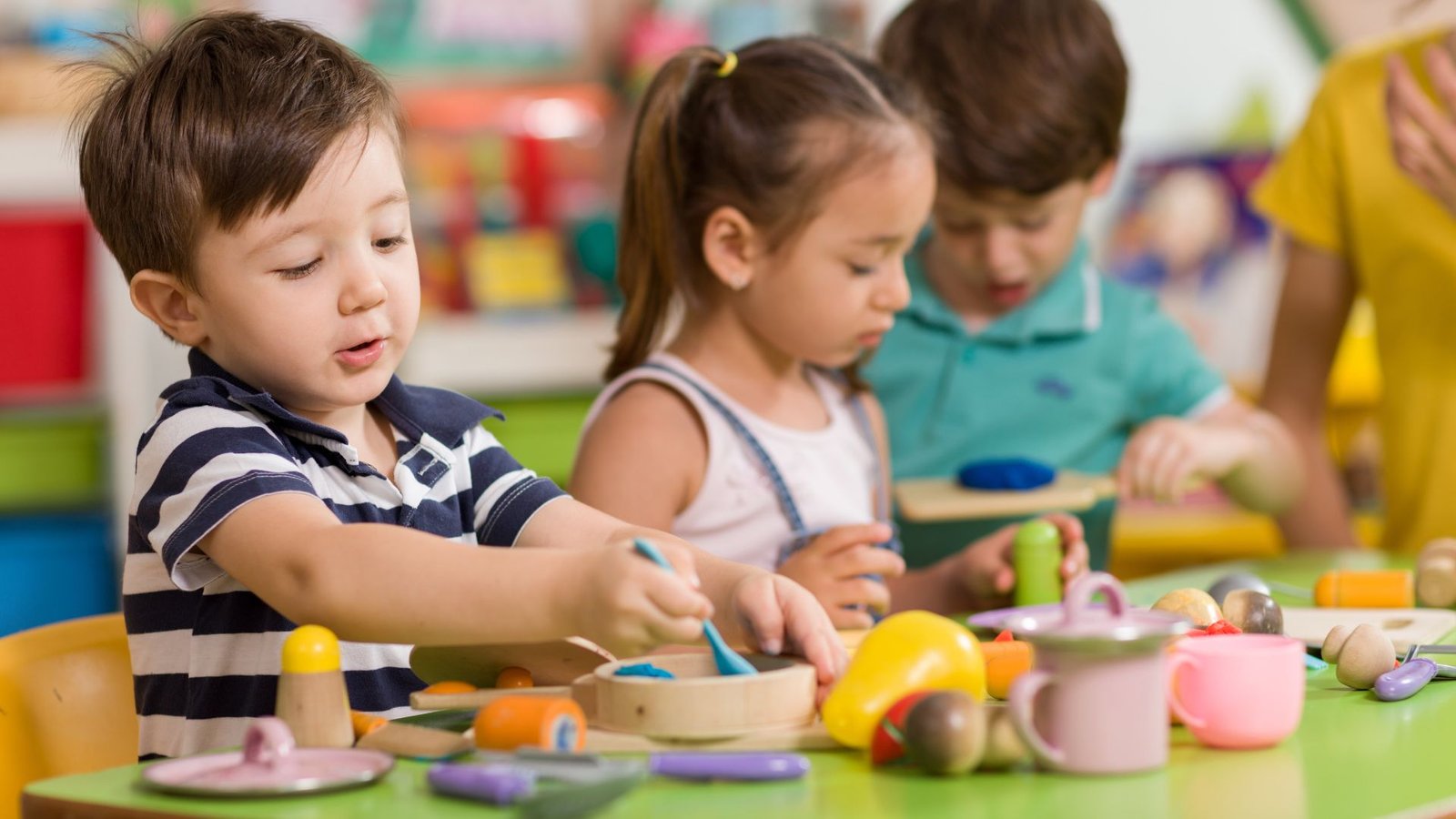Play-based learning is an educational approach that emphasizes the importance of play in a child’s development. In early childhood, play is not just a form of entertainment but a critical aspect of learning that supports cognitive, physical, social, and emotional growth. This article explores the key benefits of play-based learning in early childhood development and how it lays the foundation for lifelong learning.

Cognitive Development
Enhances Problem-Solving Skills
Through play, children encounter various challenges that require them to think critically and find solutions. Whether they’re building structures with blocks, figuring out how to fit puzzle pieces together, or navigating social scenarios in role-playing games, play allows children to experiment, make mistakes, and learn how to overcome obstacles.
Promotes Creativity and Imagination
Play-based learning encourages creativity by allowing children to explore new ideas and scenarios. Imaginative play, such as pretending to be a chef in a play kitchen or acting out a story, helps children think creatively and explore different perspectives. This imaginative exploration is crucial for cognitive flexibility, which is the ability to think in diverse and adaptable ways.
Supports Language Development
Language development is a critical aspect of cognitive growth in early childhood. Play-based activities, especially those that involve storytelling, singing, and role-playing, provide opportunities for children to develop their vocabulary, practice communication skills, and understand the nuances of language. Interactions during play also enhance their ability to express thoughts and emotions.
Social and Emotional Development
Builds Social Skills
Play is inherently social, often involving interaction with peers, siblings, or adults. Through group play activities, children learn essential social skills such as sharing, taking turns, and cooperating with others. These interactions also teach them how to resolve conflicts, negotiate roles, and work collaboratively, all of which are foundational for forming healthy relationships.
Fosters Emotional Resilience
Play allows children to express and understand their emotions in a safe environment. Through role-play and other forms of imaginative play, children can explore different emotional experiences and develop empathy by seeing the world from others’ perspectives. Additionally, play helps children learn to manage feelings of frustration, disappointment, and joy, contributing to emotional resilience.
Encourages Self-Regulation
Engaging in play, especially games with rules, helps children develop self-regulation skills. They learn to follow guidelines, wait for their turn, and control their impulses, which are essential skills for managing behavior and emotions. These abilities are crucial for success in both school and later life.
Physical Development
Promotes Motor Skills
Physical play, such as running, climbing, or playing with toys, enhances both gross and fine motor skills. Activities like drawing, cutting with scissors, or building with blocks improve hand-eye coordination and dexterity. Active play also strengthens muscles, improves balance, and supports overall physical health.
Encourages Healthy Physical Activity
Play-based learning naturally involves movement, helping children develop a love for physical activity. Active play reduces the risk of childhood obesity and contributes to overall physical well-being. By integrating movement into learning, children associate exercise with fun, making it more likely they will remain active as they grow older.
Develops Spatial Awareness
Play helps children understand spatial relationships and develop awareness of their environment. For instance, building with blocks teaches them about balance, size, and proportion, while activities like navigating playground equipment help them understand their body in space. These experiences are crucial for developing spatial reasoning skills.
Conclusion
Play-based learning is a powerful approach that supports the holistic development of young children. By promoting cognitive, social, emotional, and physical growth, play lays a strong foundation for lifelong learning and success. Encouraging play in early childhood not only nurtures essential skills but also instills a love for learning that can last a lifetime. As parents, educators, and caregivers, fostering an environment where play is valued and integrated into daily activities can have a profound impact on a child’s overall development and future achievements.

